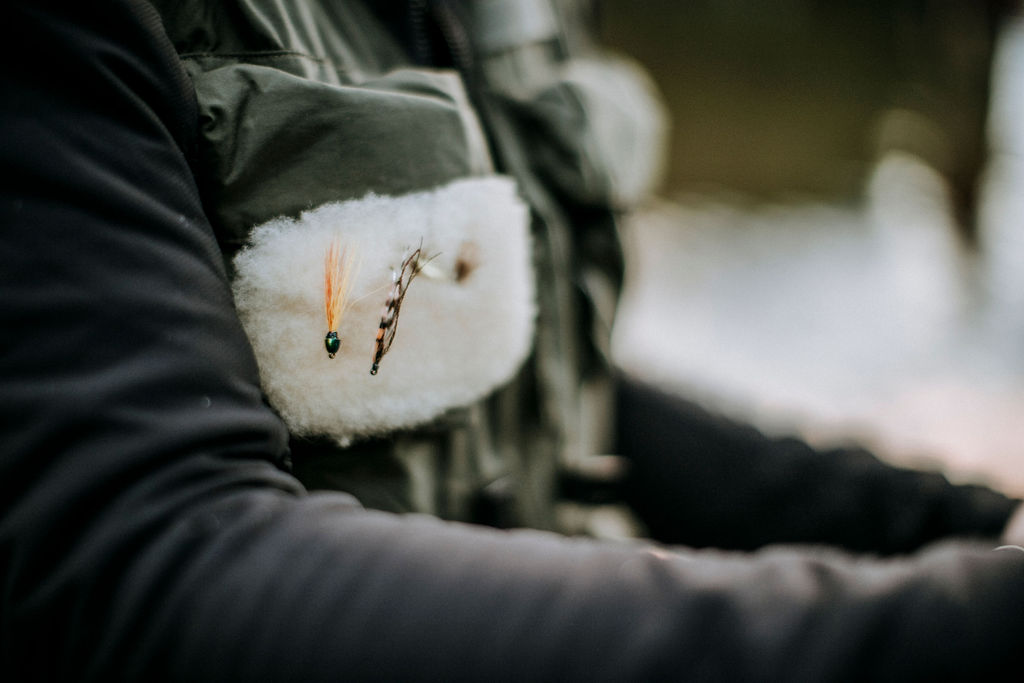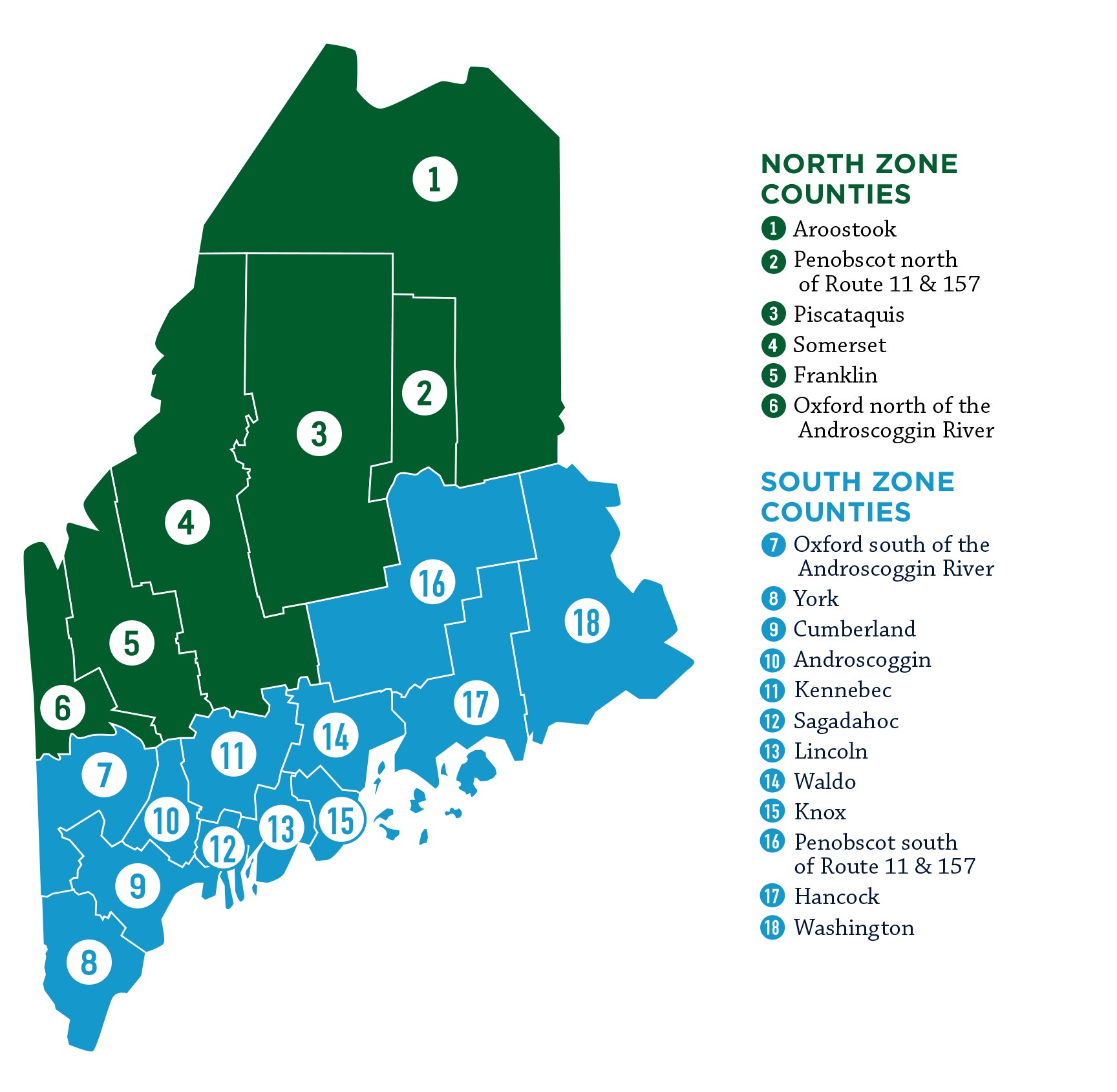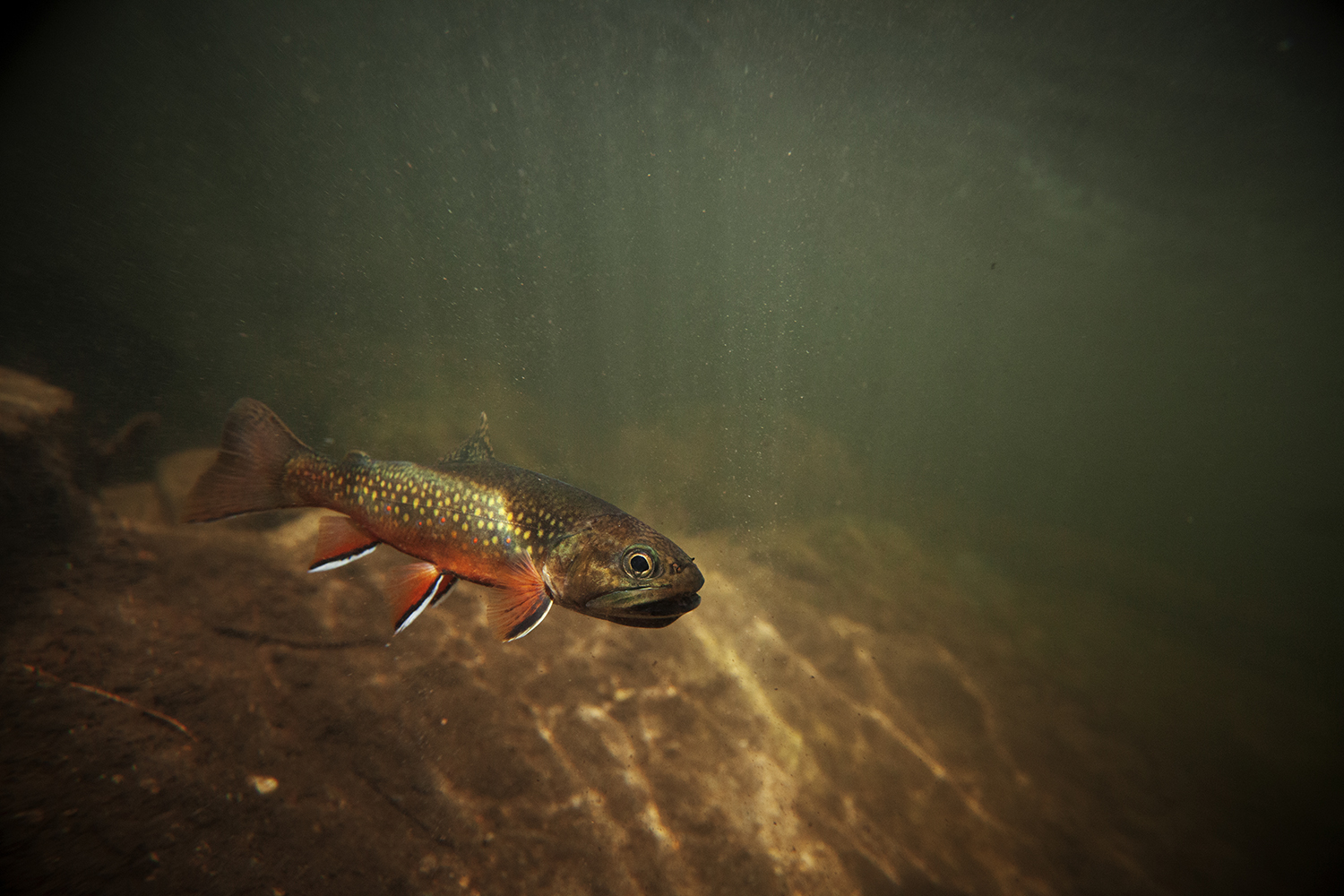March 25, 2024 at 3:05 pm
With the early onset of spring here in Maine, MDIFW staff have been fielding questions about the likelihood of passing emergency rule changes to open fishing before the traditional April 1 start date. However, many anglers are surprised to learn that recent updates to rules and the creation of new fishing opportunities over the last 5-10 years have resulted in more opportunities to fish “early” than ever before. By doing this, MDIFW has eliminated the need to pass emergency rule changes each year we have an atypical start to spring. Below you’ll find some more information on why there is no longer a need to pass emergency rules to open the fishing season early.

Lakes and Ponds
There are different General Law season dates, brook trout bag limits, terminal gear restrictions, and bass bag and length limits depending on zone, North or South. Why have two General fishing Law Zones? The North Zone contains an abundance of wild and native coldwater fish populations while the South Zone contains predominately stocked and/or warmwater fisheries. The difference in General Fishing Laws reflect the management needs for the two zones, and typically offer additional protection to wild and native resources in the North and more angling opportunity (i.e., fall or year round fishing) in the South.

South Zone
Under the South Zone general law, lakes and ponds over 10 acres in size are open to open water and ice fishing year-round. That means if there is ice in December, you can ice fish; and likewise, if there is open water in March, you can open water fish. There are some exceptions to this general law and you’ll need to check the special fishing laws associated with individual waters to see if there is specific language or an S-Code that closes the water during the typical winter months. Keeping these waters closed during this time of year is driven by a resource need and may include factors such as small size, management for quality or trophy sport fisheries, or containing native populations of wild fish that may be susceptible to overharvest. So, if a lake or pond remains closed to fishing until the traditional April 1st start date, there’s a reason.
North Zone
Under the North Zone general law, lakes and ponds are closed to all fishing from October 1st to March 31st unless specifically opened in the special fishing laws associated with individual waters. Keep an eye out for waters containing Special Season Codes “A” or “B”. These codes identify the water as open to ice fishing and open water fishing (if there are areas free of ice) during the specified dates. Just like in the South Zone, management goals are driven by resource needs, and waters with the “A” or “B” season codes can support ice fishing or early open water season fishing. There are just shy of 300 North Zone lakes and ponds with the “A” or “B” special season codes, so there are plenty of opportunities for those of you itching to wet a line.
Rivers, Brooks, and Streams
Statewide
In both the South Zone and the North Zone, brooks, rivers, and streams are closed to all fishing from October 1st to March 31st. This is the time period where many of Maine’s native fish species spawn, develop over the winter as eggs, and hatch out as fry in the spring. This general law protects these fish in flowing waters where much of the necessary habitat exists. However, MDIFW does allow some exceptions to this rule, where its appropriate for the resource. These brooks, rivers, and streams (or discreate sections thereof) are open to year-round fishing and are noted in the special fishing laws section. Look for the special rule: “Open to open water fishing from January 1 - December 31”. Statewide, there are about three dozen rivers, brooks, and streams that allow year-round angling.

Additional Considerations
Mud Season
Mainers associate this time of year for one thing in particular - mud! Based on how my lawn looks right now, this year is no exception. 94% of Maine’s land is privately owned, but thanks to the generosity of many gracious landowners, anglers have access to lakes, ponds, rivers, and streams across the state. Be respectful and considerate of property owners and the impacts to their roads and access sites. Regardless of whether a site is owned by the state, county, town, or a private landowner, someone will have to repair any damage done to infrastructure. Currently most of our dirt roads are incredibly soft. Respect closed gates and restricted areas. You can learn seven easy ways to be a good land user through our Outdoor Partners Program.
Cold Water Safety
At this time of year, the water is very cold and flows are high in brooks, rivers, and streams. Be prepared for the conditions and dress in layers, wear your lifejacket at all times, and tell others where you plan to go and when you plan to be home. Trust me, nobody ever regrets planning ahead or using common sense. Be safe out there!
Helpful Tools to Understand the Rules
- Downloadable PDF version of Maine’s Inland Fishing Laws: While you have cell service or Wi-Fi, you can view a PDF version of the law book right on your smartphone; and if you’ll be in areas without service, you can download the PDF right to your phone. It puts the old paper copy of the book, right in your pocket!
- Searchable Special Fishing Laws Table: This searchable table located on MDIFW’s website, allows you to determine if the body of water you want to fish has any Special Fishing Laws that differ from the general fishing law seasons and bag limits. By using the “Search” fields at the top of column, you can type in key words to search for. For example, if you want to find all North Zone waters with Special Season Code “A” type “A (Open” at the top of the Special Regulations column. (Note – The search is character specific, so it will only search for the exact text you type.
- Fishing Laws Online Angling Tool – FLOAT: This map based online tool will give you a quick and easy way to see which of Maine’s thousands of inland waters have Special Fishing Laws. By accessing FLOAT from your computer or smartphone, you can quickly locate a body of water, determine if it is regulated with General and/or Special Fishing Laws, and download a PDF to print or view later.